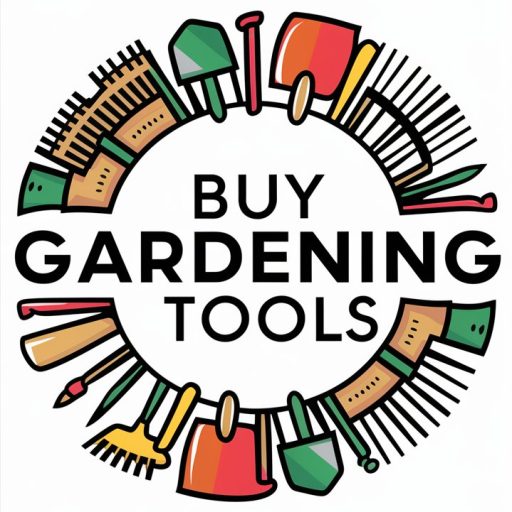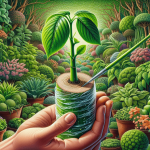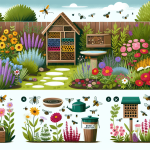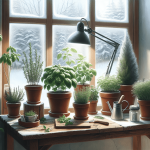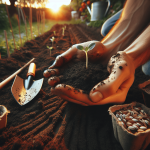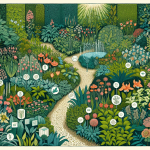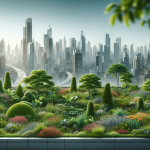This post may contain affiliate links. As an Amazon Associate, we may earn commissions from qualifying purchases.
Do you ever look at old, worn-out items and wonder what delightful new purpose they might serve, especially in your garden? Transforming what seems like mere junk into something beautiful and useful is not just a trend; it’s a wonderful way to personalize your space, save money, and reduce waste. Upcycling, or creatively repurposing materials, can breathe new life into your garden while giving you the satisfaction of crafting something unique and expressive.
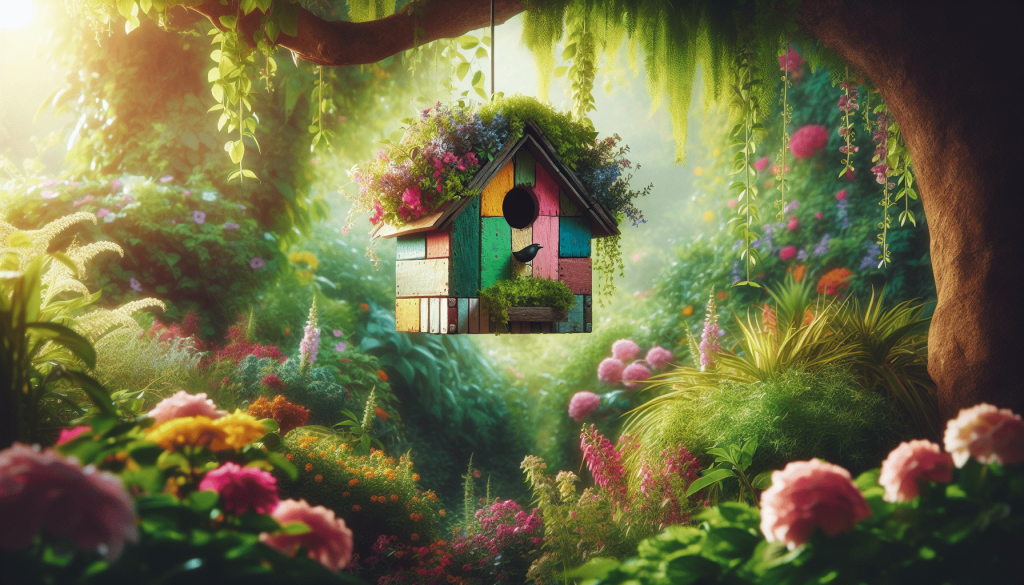
Why Upcycle In Your Garden?
When you upcycle, you’re not just saving the planet one small step at a time but also adding character and charm to your garden. Upcycling is all about seeing potential in the otherwise overlooked items. You may find yourself with a garden full of stories, each piece telling its tale of transformation.
Benefits of Upcycling
- Environmental Impact: Reduce your carbon footprint by reusing materials that might otherwise end up in a landfill.
- Cost-Effective: Save money on garden supplies by using what you already have or acquiring second-hand items for cheap.
- Customization: Craft one-of-a-kind pieces that reflect your personal taste and creativity.
How to Start Upcycling in Your Garden
Before jumping headfirst into the creative side, consider taking a moment to plan. Look at your garden and identify areas that need improvement or items that could use a bit of flair.
Assessing Your Space
First, determine what kind of vibe you want your garden to have. Is it whimsical, modern, rustic, or eclectic? Once you decide, look around and see what’s missing or what could be enhanced.
Collect Materials
Start gathering materials. Look for items in your home, garage, or a friend’s junk pile that could be repurposed. Things like wood pallets, old bricks, broken pottery, or used tires might not hit you immediately as treasures, but they certainly can be.
Repurposing Common Household Items
You’d be surprised how many household items are dying to break free from their mundane roles and blossom into garden masterpieces.
Old Tires
Old tires are often seen as cumbersome, but in your garden, they can become colorful planters or even the foundation of a unique vertical garden. Stack them in a creative manner, paint them, and let them host your favorite plants.
Wooden Pallets
Wooden pallets are like the Swiss army knife of upcycling. They can be transformed into planters, used to support climbing plants, or turned into vertical gardens and compost bins by adding shelves, pots, or growing mediums.
Broken Pottery
We all know the heartache of discovering a shattered pot. But don’t throw it out! Create charming mosaic designs or plant markers, or use the pieces to improve drainage in other planters.
Unique Container Ideas for Your Garden
Plant containers can be made out of almost anything, turning your garden into a delightful scavenger hunt of creativity.
Bathtubs and Sinks
An old bathtub or sink can be an excellent home for a small herb garden or a striking centerpiece for flowers. Their deep structure allows for substantial root growth, and they have built-in drainage, making them almost perfect for the job.
Teapots and Kettles
These items can breathe new life as quirky hanging planters or be embedded into garden pathways for an unusual twist. They add a nostalgic charm and can be used to hold small plants, such as succulents or herbs.
Boots and Shoes
Old boots and shoes can make fun and novel planters. Whether nailed to a fence or laid out on the ground, they add a quirky touch your garden guests will love. They work best with small plants or herbs due to space constraints.
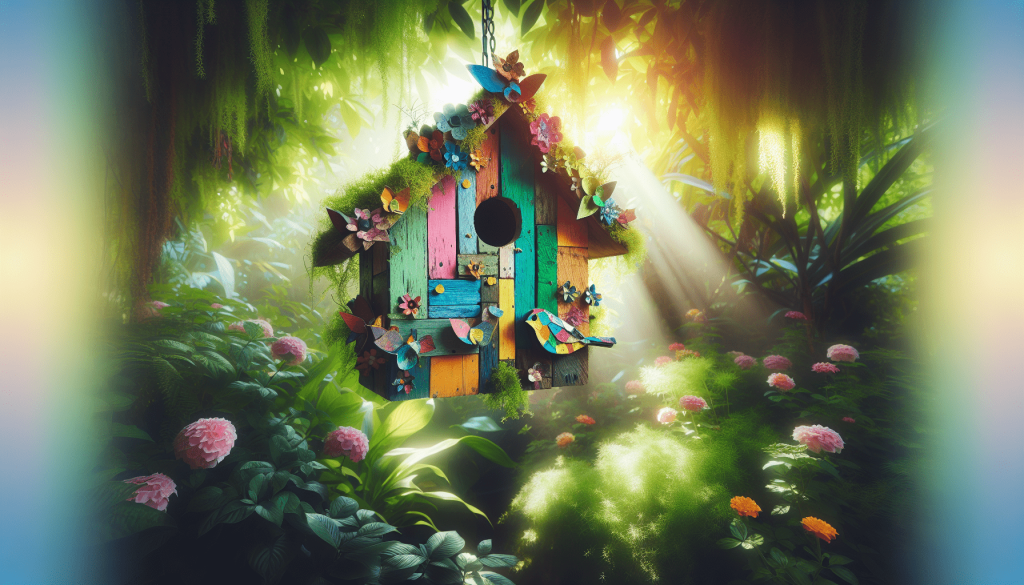
Transforming Larger Items
Sometimes, more oversized items can turn your garden from ordinary to extraordinary.
Bed Frames
Turning a bed frame into a garden trellis is a perfect way to invite climbing plants into your space. Paint it for a pop of color, and let vines meander through the metalwork just like in an old English fairy tale.
Doors and Windows
Think about using old doors and windows as barriers, windbreaks, or backdrops. They can be incorporated into wall dividers or used to frame certain parts of the garden visually.
Dressers
Outdated dressers are perfect for adding vertical planting space. By filling the drawers with soil and staggered plants, you can create a mini-tiered garden. Paint or decorate it for additional flair.
DIY Garden Art from Reclaimed Materials
Art is not limited to the canvas. Your garden is its own kind of tapestry, waiting to be adorned with delightful creations.
Bottle Borders
Empty wine or beer bottles can be used to create colorful borders, path markers, or even catch the light and cast colorful reflections. Opt for different colors and bury them neck-deep.
Can Wind Chimes
Upcycle coffee cans or soup tins into wind chimes. String them together, add a little paint or decorative touches, and transform them into an auditory sculpture that will dance in the breeze.
Silverware Sculptures
Old forks and spoons can be bent and bonded into abstract sculptures or even used as fanciful plant markers. Let your imagination and idle silverware run wild!
Building Structures from Reclaimed Materials
There’s something deeply satisfying about building something substantial and seeing it take shape in your garden.
Greenhouses from Windows
Use old windows to construct a quaint greenhouse. Their durability and transparency will serve well for protecting tender plants while offering an aesthetic appeal straight from a storybook.
Chicken Coops
If you own chickens, consider using pallets, barrels, and crates to create a cozy and rustic coop. It’ll serve as both a charming garden feature and a functional shelter for your feathered friends.
Arches and Pergolas
Combine old doors, beams, and sturdy metal to craft an archway or pergola. These structures can provide shade and a passageway anchored in both beauty and practicality.
Upcycling for Functionality
While upcycling is often about creative expression, remember that functionality in the garden is equally important.
Rainwater Collection Systems
Old barrels, plastic containers, or bathtubs can double as rainwater catchment systems. By harvesting rainwater, you can conserve water usage in the garden and maybe get an eco-friendly rain dance out of it too.
Composters
Create compost bins using pallets or worn-out trash cans. As waste decomposes, it’ll provide the rich nourishment your garden craves while helping reduce waste.
Garden Furniture
Fashion benches, tables, or shelves from reclaimed wood or old tires. You can mix different textures and colors, producing a space that’s as inviting as it is environmentally conscious.
Safety Tips When Upcycling
Before you grab your tools and embark on your upcycling adventure, it’s essential to be mindful of safety.
Wear Protective Gear
Always wear gloves, goggles, and any other safety gear that will protect you from sharp edges or hazardous materials.
Treat All Materials
When working with wood, plastics, or metals, make sure they don’t contain harmful chemicals. Sand down rough edges and treat materials to withstand weather exposure.
Stability and Durability
Ensure that structures are stable and securely assembled, especially if they’re supporting weight. Regularly check any installations to maintain their integrity.
Keeping the Momentum
Once you begin upcycling, it may quickly become a part of your creative routine. The sky’s the limit with possibilities, and your garden is the canvas.
Join Upcycling Communities
Connect with others who share your passion through online groups or local workshops. You’ll find ideas, advice, and inspiration to keep pushing the boundaries of garden creativity.
Stay Inspired
Find inspiration whenever you can. Nature itself is one of the best muses, but keep an eye on design blogs, social media, and local gardens for hints of what your next project could be.
In this merging of imagination and environment, upcycling offers you not only the chance to be a guardian of nature but also an artist at heart. The possibilities are endless, and your garden is waiting for the touch of your hands, eyes, and, most importantly, your dreamscape. So next time you see an item ready to be tossed aside, pause and consider what garden dreams it might yet hold.
